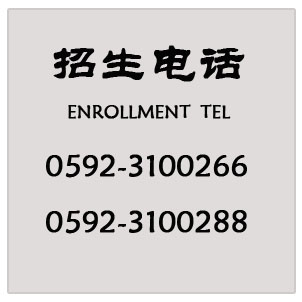真切关爱,携手共进 Lecture: Teaching Children Self-discipline
当孩子降临到家庭中,最先接触到的是母亲和父亲。父母是孩子的引路人。我们都期待与孩子的成长有着弥久而持坚的关系,期盼成长为自律且乐观的孩子。踏着秋的味道,我们一起来聆听厦门工学院附属学校幼儿园家长学校讲座:唤醒孩子的自律。
Parents are the first people the children attached when they were born. Parents are the guiders. We all expect closed parent-child relationships and we expect the children to be positive and self-disciplined. Our school held a parents salon and invited Ms.Dou to give a lecture about how to awaken children self-discipline.
伴随着午后阳光的气息,在这个疫情特殊时期,家长们有序进校园,完成签到及测温的准备工作后有序进入会场。
Because of the virus, before parents walked into our school, they need to disinfect their hands and take their temperature.
活动伊始,PET父母效能训练资深讲师窦珺女士进行了简单的自我介绍。她,既是一名译者,也是一名老师,还是一名家长。“有用的技术,领悟的瞬间”是她对于唤醒孩子自律的见解。
When the lecture started, Ms.Dou introduced herself a translator, a teacher and a mother. She also explained her understanding about how to teach children self-discipline, a useful skill and the moment of understanding.
本次家长讲座,窦珺老师主要围绕了倾听、情绪教养、生活里的美育三方面跟家长朋友们进行交流与讨论。
There are 3 parts in the lecture: active listening, emotion upbringing, and life-aesthetic education.
何为倾听?
What is Listening
倾听让关系更美好,它如同一块香草巧克力,让你和孩子在清晨的某个时刻更美好。听,是全息沟通。他需要全身多种感官的参与,包括姿态、语调和语气。与孩子平视,让孩子找到他与我们最舒适的距离。静静地,只用耳朵倾听,不打断,不说教,静下心用心的陪伴。倾听让我们构建起桥梁,在彼此之间构建起信任的桥梁与相互之间的尊重。
What is listening? The Chinese word about listening explained it very well. Listening is holographic communication which involved in many senses like ears, eyes, nose, brain, etc. Active listening means you need to watch the children’s eyes in their eye level with a comfy distance, just listen and give your company, without interruption and judgement. Active listening is a bridge which will lead to mutual respect and trust.
情绪教养
Emotion Upbringing
孩子首先需要认识情绪有哪些:开心、伤心、愤怒以及害怕、嫉妒等。当这些情绪向孩子袭来时,除了大哭大闹,我们还可以引导孩子用哪些方式来表达或者调节自己的情绪?窦珺老师在引导孩子情绪调节方面为我们提供了四个建议:运动,亲近大自然,调理脾胃以及立志向。
Children need to know different kinds of emotions: happy, sad, angry, scary, ect. When they feel sad or angry, except cry or shout, do they have other ways to express themselves? We need to think about how to help them regulate their emotion. Ms.Dou provided 4 suggestions: doing sports, outdoor activities, regulating spleen and stomach, building a goal.
生活里的美育
Life-aesthetic Education
现在的教育讲究德智体美劳,全面发展。其中的美育到底是什么呢?众所周知,家庭是孩子接受教育的原点。对孩子进行音乐、绘画作品等艺术素养的培养,这只是美育的其中之一,属于专业知识储备、技能提升方面的美育,其获得渠道更多来自于外界的教育影响。窦珺老师在分享中与家长们深切交流,在交流中迸发出思想的火花。
How to do life-aesthetic education? Ms.Dou communicated with parents and in the communication, there were lots of great ideas.
生活中,专门的亲子时光是解决亲子关系问题的杀手锏。时间不需要太长,而是在这段有效的时间里让孩子有时间支配你的权利。给孩子知道你确实欣赏他的机会,创造属于你和孩子最有效的亲子时光。“爱生活的自己”如同一本孩子的正面教材。努力的装饰生活里的点滴,让自己的生活里有爱的气息。
Ms.Dou suggested to have a ‘special time’ with children. Special Time is an effective way to solve some problems in the parent-child relationships. It doesn’t need to be long. But in this time, the children have the rights to command the parents. It is the time to let the children know that you admire them. Love yourself. It is also a chance to teach your children to love their life.
此次的家长讲座是本着真切关爱幼儿,与家长携手共进的目标,探讨如何做到“唤醒孩子的自律”,老师与家长朋友们共勉,在平常与孩子们的生活中做到:
倾听
与孩子保持平视
用心陪伴
只用耳朵听,不打断、不说教
情绪教养
正确表达情绪
能够说出自己的情绪
能够调整自己的情绪
生活里的美育
生活中高效的陪伴,专门陪伴幼儿的时间
爱生活中的孩子,爱生活中的自己。
After this salon, we hope
we can work together to teach and awaken children self-discipline.
Here are some tips:
Active listening:
Watch children’s eyes in their eye level
Company with your heart
Listen without interruption or judgement
Emotion upbringing:
Express feelings correctly
Show the ways how to regulate
their feelings and emotions
Life-aesthetic education:
Special time
Love your children and love yourself




